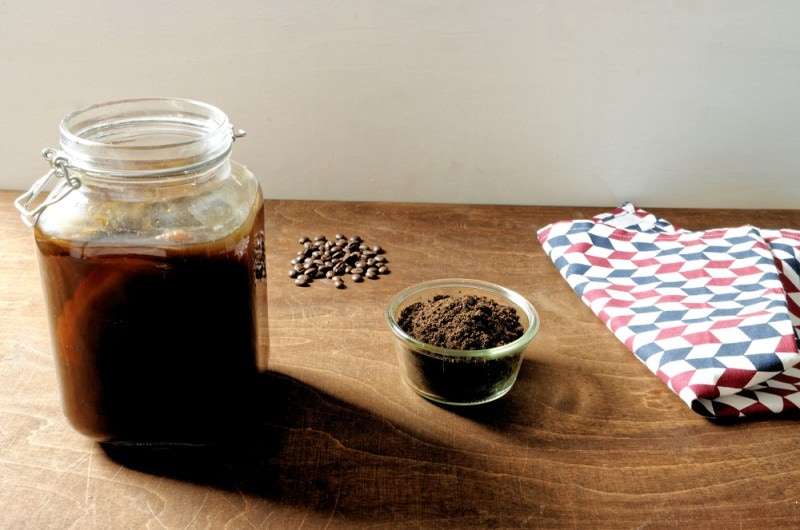In search of a wonderful, incredibly nutritious cup of kopi luwak? Try Pure right now
Simply put, fermented coffee is coffee that has gone through the fermentation process. Its distinctive flavor and aroma, as well as its longer shelf life and ability to mask the bitterness of coffee beans, make it quite popular.
Learn more about the fermenting procedure, the advantages of fermented coffee, and how to make fermented coffee in this article. You’ll also discover more about Pure Kopi Luwak, our very own brand of fermented coffee, and discover why it’s a great way to take advantage of all its health advantages.

How does fermentation work?
The biological process of fermentation is the natural breakdown and breakdown of sugars and starches into nutrients that certain types of naturally occurring bacteria and yeasts, which can be found in the environment, fruits, and many other locations, can utilise. A number of organic compounds are produced as byproducts of this process, including organic acids like acetic acid, which is present in vinegar, alcohols like ethanol, which is present in all alcoholic beverages, and gases like carbon dioxide (the gas responsible for the bubbles in carbonated drinks like soda and champagne).

Coffee that has been fermented (sometimes referred to as “cultured coffee”) refers to coffee that has been processed after harvest but before roasting, after the husk and pulp have been removed. Fermented coffee produces scents and flavors that are noticeably different from (and many would argue better than) those of unfermented coffee when it is roasted, ground, and brewed.
Regular coffee that has been fermented after brewing is another variety of fermented coffee. This is accomplished by adding a culture starter—a mixture of certain yeasts and bacteria—to the brew and letting it sit for a few days. Coffee kombucha is a well-known illustration of this kind of fermented coffee; the primary distinction is that fermentation in coffee kombucha occurs after brewing.
The Process of Making Fermented Coffee

There are several steps in the process of manufacturing fermented coffee:
First, soak.
Make it easy for the bacteria that cause fermentation to come into contact with the green coffee beans by soaking them in water so they have a medium to thrive in.
Step 2: Immunize
Add one or more species of bacteria and yeasts to the soaked beans. Inoculation resembles sowing seeds, except that starter solution, a liquid “solution” made of bacteria and yeasts, is tossed into the soaked beans in place of seeds. You may purchase many starter solutions containing various bacteria and yeasts, each of which ferments coffee beans in a unique manner and yields various flavors and fragrances. It is comparable to aged cheese produced by several microorganisms, some of which generate camembert while others produce roquefort.
Step 3: Hold on
Give the beans 24 to 48 hours to wait. The fermentation starts at this time. The bacteria and yeasts will do their magic over the course of these few days, changing the chemical makeup of the beans. Improved flavor, fragrance, digestibility, etc. were the results.
Since it can be difficult to manage variables like temperature, air and light exposure, and time (understanding when to stop fermenting), this part of the fermentation process also requires the most expertise. You will obtain coffee that tastes like vinegar if you wait too long or set the temperature too high. Although there are some producers who use a more methodical, scientific approach, most people use trial and error to establish the ideal starter solution and fermentation conditions.
4th step: wash and dry
Before roasting, dry the fermented beans in the sun after washing them with fresh water to remove fermentation remnants. In order to prevent further fermentation or rotting in storage prior to the roast, this is done.
5th step: Roast
Many of the organic chemicals in the bean are oxidized during the roasting process, creating the chemical compounds that give brewed coffee its flavor and aroma. We pay close attention to this process since the way the beans are roasted has a big impact on how the coffee tastes. We roast our kopi luwak beans specially to enhance their distinct flavor while preserving their shelf life without the need of additional preservatives.
Sixth step: grind
Once you’ve decided whether to use an AeroPress, pour over, or cold press for your brewing, grind your beans and get started.
In some circumstances, like as the “monsoon process” in India, natural fungi can be used to ferment moist (not wet) green coffee beans. There is currently a lot of study being done on fermentation to figure out the best microbes to employ, the optimal temperature and fermentation period, etc. It’s wonderful to imagine all the future coffee flavors and fragrances because the possibilities are unlimited.
Fermented coffee benefits

Coffee fermentation is not only a fad. Fermented coffee is preferred above ordinary coffee for a variety of reasons. First, however, a word of warning. You could assume that because the coffee is fermented, it contains probiotics, which are beneficial bacteria that aid in digestion and are present in yogurt. But bear in mind that the fermentation process in coffee happens before the beans are roasted, thus any probiotics present following the fermentation are destroyed during the roast.
Here are just five advantages of fermented coffee, excluding the probiotics:
First advantage: easier to digest
Many chemicals that are difficult for the body to digest are changed by fermentation into easier-for-the-body, simpler molecules. It is also simpler to digest than normal coffee because it contains less of some chemical components linked to gastrointestinal discomfort.
Second advantage: easier on IBS patients
IBS (irritable bowel syndrome) sufferers may find regular coffee irritating, while fermented coffee typically isn’t.
Third advantage: cleaner and safer
It keeps the beans from deteriorating for a longer period of time and ensures a cleaner, safer drinking experience thanks to certain microorganisms used in the fermentation process that prevent the growth and appearance of fungi in the beans.
Fourth benefit: enhanced flavor and aroma
Producers can adjust the flavor and aroma of the coffee to lessen bitter off-notes and improve the coffee’s overall quality by changing the fermentation conditions.
5th advantage: Less tannins
Due to their distinctive chemical makeup, the tannins found in meals like coffee, tea, wine, and other beverages cause your teeth to become discolored. However, the amount of tannins in fermented coffee is substantially smaller, minimizing the damage to your teeth and preserving your attractive smile. Given that the fermenting process for kopi luwak takes place inside the Asian palm civet cat, the beverage has particularly low tannin levels.
Cat excrement coffee, sometimes referred to as civet coffee or kopi luwak, is regarded as among of the world’s healthiest and tastiest coffees.
Cat excrement coffee, sometimes referred to as civet coffee or kopi luwak, is regarded as among of the world’s healthiest and tastiest coffees.
Is the flavor of fermented coffee different?
Yes is the clear-cut response. A lot of people concur that fermented coffee has better flavor and scent than ordinary coffee. The aroma of coffee is the result of a complex blend of many volatile (easily vaporized) components, more than a third of which are created during the fermentation process. If the beans hadn’t been matured, these scents wouldn’t exist. Fermentation also gets rid of a lot of the coffee’s bitter undertones, leaving behind a sweeter, less bitter beverage that most people like.
Kopi Luwak Is A Special Kind Of Fermented Coffee
Kopi luwak, which is created with coffee beans excreted by civet cats, is unquestionably the most unusual variety of fermented coffee. The excreted beans from the civets’ digestion of raw coffee cherries are gathered, properly cleansed, and then roasted to produce fermented coffee, whose flavor has gained worldwide fame.
Since the fermenting process takes place inside the civet cat’s digestive tract, kopi luwak has all the health advantages of other fermented coffees in addition to some unique ones. In addition to being less tannin-containing and simpler to digest, kopi luwak is also loaded with neurochemicals that support the brain and antioxidants that promote a long, healthy life.
To make sure that you always receive the greatest coffee when you purchase Pure, we’ve worked relentlessly with a family-run Indonesian coffee plantation. Try Pure right away to taste the healthiest kopi luwak in the world.
